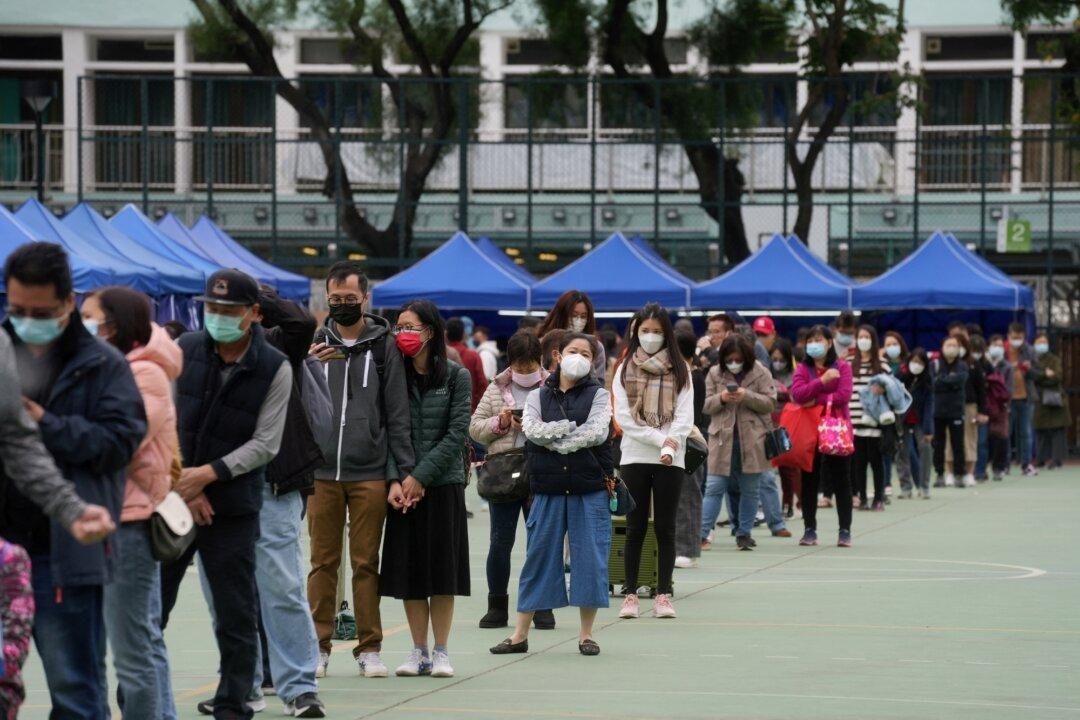HONG KONG—Hong Kong announced stringent new coronavirus restrictions and record new infections on Tuesday, while a shortage of vegetables added to the misery as truck drivers who tested positive for COVID-19 were unable to bring them from mainland China.
The Asian financial hub reported a record 625 coronavirus cases on Tuesday, with cases likely to continue rising rapidly, authorities said. There were 2,600 infections over the past two weeks compared with just two in December.





